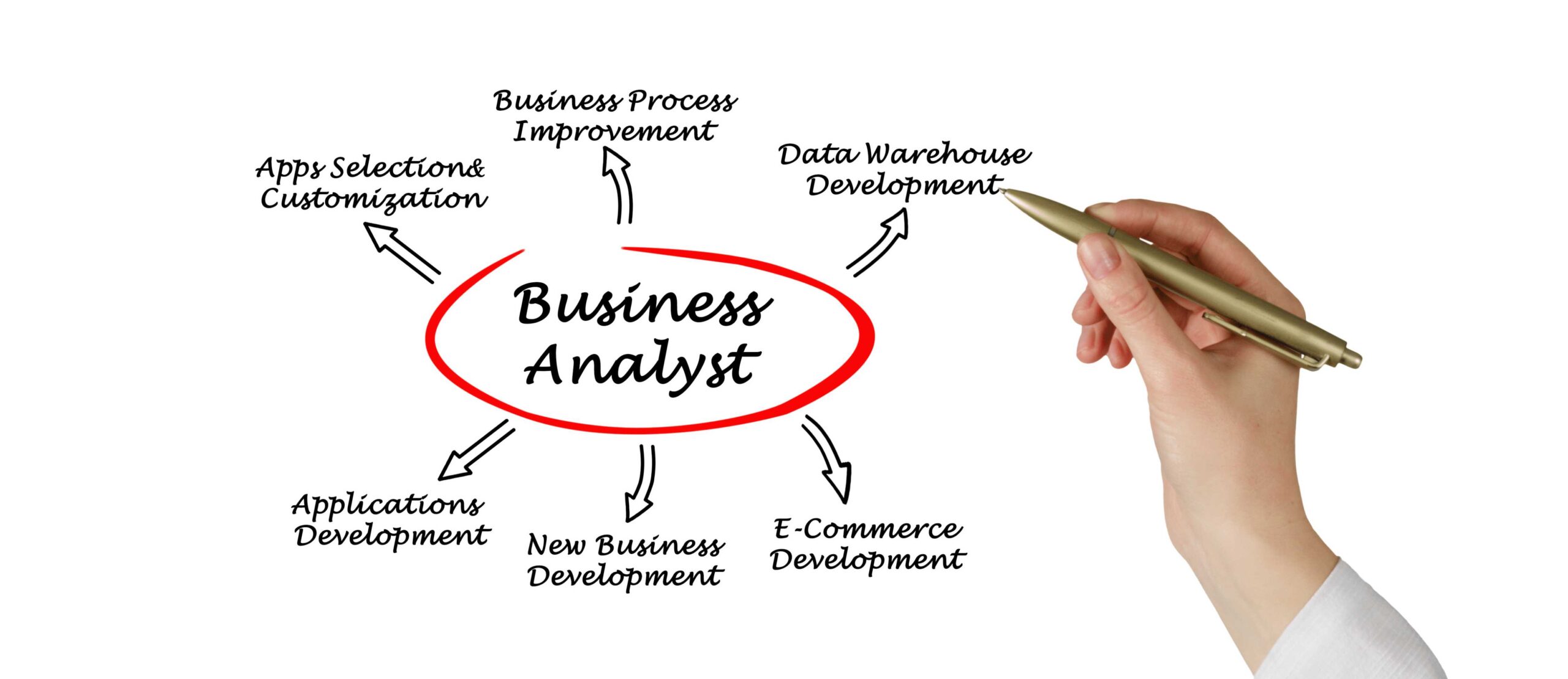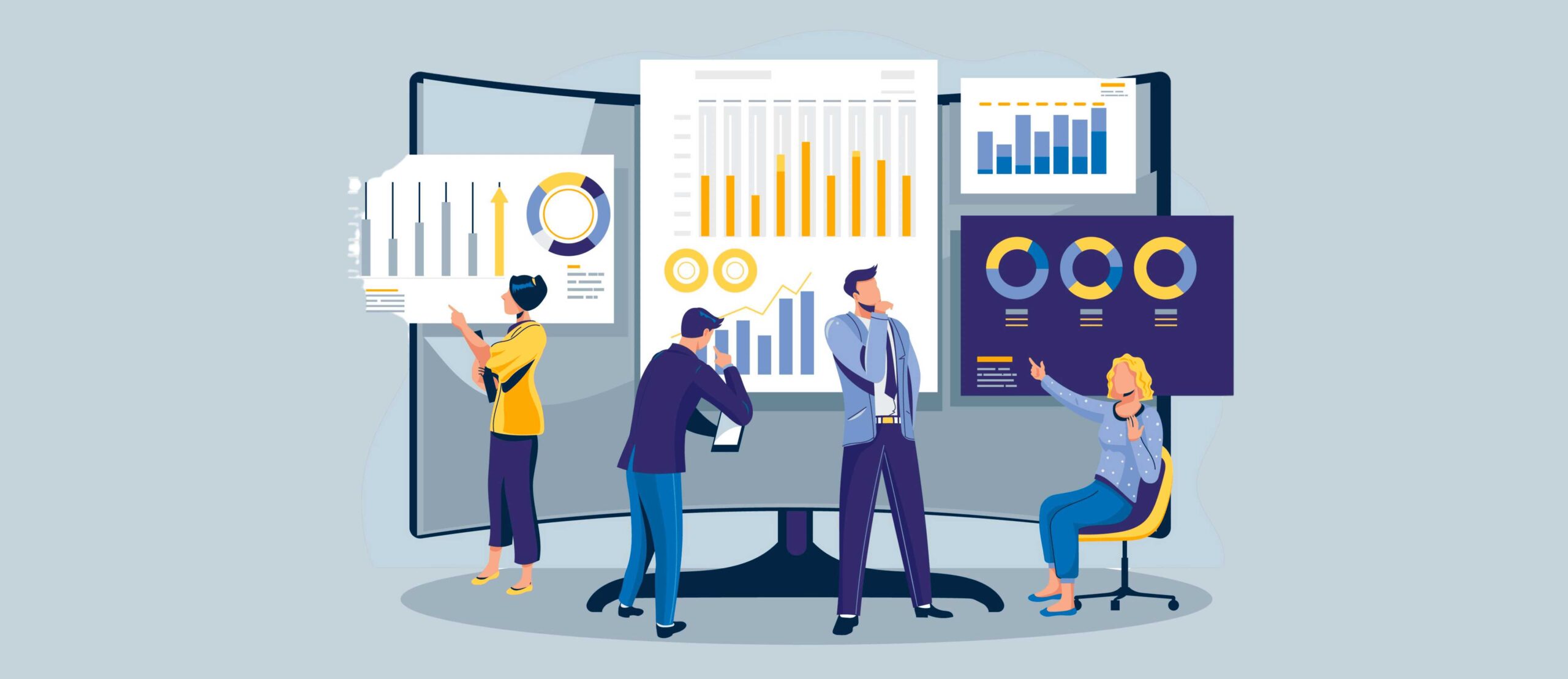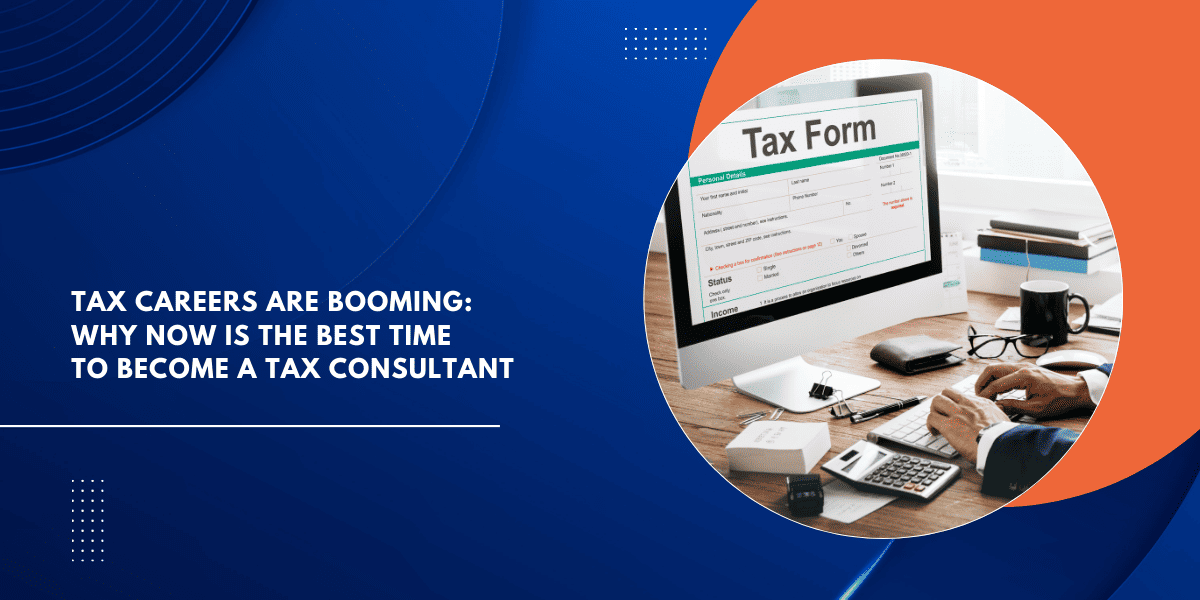If you’ve landed here, chances are you’re either curious about the career path for business analyst, or you’ve already decided that this is where your future lies.
Welcome to the beginning of an exciting journey—because in my opinion, there’s never been a better time to explore this career.
I’ve worked with students and young professionals for years, and I’ve seen the career path for business analyst evolve drastically. What used to be a niche role even a few years back is now one of the most in-demand jobs across industries—be it tech, finance, healthcare, or even retail.
Take, for instance, Amit, who was once an MBA graduate looking for a corporate job in marketing. He landed a position at a reputed firm in Mumbai, but soon realized that his potential was being underutilized. With strong computational abilities and analytical skills, he decided to pursue a career in business analytics. And now he has got a successful high-paying job in New York!
Thus, what worked in Amit’s favor was his timely decision and his ability to gauge what he truly wanted in life. That’s why I always feel that career clarity is essential for anyone who aspires to be happy & successful.
So today, I want to talk about this wonderful career path in business analytics. I’ll walk you through how you can get started, the skills you need to develop, and what exciting opportunities lie ahead if you choose to pursue this rewarding field.

Industry Spotlight: Why Everyone Needs a Business Analyst?
According to a report by Fortune Business Insights, global business analytics market will grow from $103.65 billion in 2022 to $420.98 billion by 2030, at a CAGR of 19.4%. This shows how organizations worldwide are investing in data-driven decision-making and business intelligence.
That’s something I often tell students during career guidance sessions: “Business analysts are like translators—but not for languages but for ideas.” And in fact, every industry needs them today more than ever to survive the cut-throat competition.
An Introduction to the Career: Who Is a Business Analyst?
A business analyst is someone who acts as a bridge between business needs and technology solutions. You’re not just crunching numbers or writing reports—you’re solving real problems.
You look at data, talk to stakeholders, and translate vague requirements into structured plans. If you’re someone who enjoys asking “why” and “how” more than just accepting “what,” you’re already halfway there.
One day, you might be diving deep into a spreadsheet, analyzing patterns in customer behavior, and the next, you could be leading a cross-functional meeting to streamline internal workflows or improve a product’s user experience. The work is rarely repetitive, and each project brings new challenges and learning opportunities.
Key Responsibilities & Work Environment
What Do Business Analysts Really Do?
The job of a business analyst is deeply analytical, strategic, and people-oriented. A business analyst’s job is to connect business goals with technical solutions—decoding data, simplifying processes, and making businesses smarter, one insight at a time.
- Problem Identification – Understand business challenges through meetings, interviews, and data analysis.
- Requirements Gathering – Define what the business needs through documentation, flowcharts, or user stories.
- Data Analysis – Use tools like Excel, SQL, or Tableau to interpret data and spot trends.
- Solution Design – Propose fixes, process improvements, or new tech tools to meet objectives.
- Reporting & Documentation – Build reports, dashboards, and write up findings to guide decision-making.
Work Environment
A business analyst’s world is fast-paced, deadline-driven, and often full of collaboration. Whether you’re in finance, healthcare, tech, or consulting, the environment calls for both analytical thinking and people skills.
It’s a role that evolves constantly with each project, client, or business goal.
- Project-Based Work – BAs often juggle multiple projects across departments or clients.
- Hybrid Office Culture – Expect a mix of in-office and remote work, depending on your employer.
- Cross-Team Collaboration – Work with product managers, engineers, marketers, and executives.
- Client-Facing Roles – In consulting, you’ll travel or connect with clients regularly to understand needs.
- Data Sensitivity – You may handle confidential info, especially in finance or healthcare.
Educational Pathways & Required Qualifications
Business Analytics Route – Step-by-Step Breakdown
There are clear academic milestones and recommended qualifications that can set you up for success. Whether you’re in high school planning ahead, or a working professional making a switch, here’s how to pursue Business Analytics:
10+2 with Any Stream (Maths Preferred)
Start with a strong foundation in analytical thinking. While students from any stream can pursue business analysis, those with Maths, Commerce, or Computer Science often have an early edge due to familiarity with data and logic-based reasoning.
Bachelor’s Degree (3–4 Years)
While graduates from any stream can pursue business analytics, it’s even better if you’ve completed your graduation in one of the following subjects.
- BBA (Business Administration)
- B.Com (Commerce, Finance, or Economics)
- B.Sc in Statistics, Mathematics, or Computer Science
- B.Tech in IT, CSE, or related fields
From my personal experience, I can say that if you are hardworking and passionate, you can succeed in this field. Rekha from Chennai was a simple B.Sc. graduate — but you know what? She chose business analytics, and not only did she complete her certification program with flying colors, she also landed a job at a prestigious US-based firm.
Now, she’s enjoying, exploring, and excelling in her role. Just yesterday, her parents informed me that they’re now planning to settle permanently in the US — all thanks to Rekha’s lucrative job!
Master’s Degree (Optional but Preferred)
It’s not mandatory, but many candidates choose to pursue a postgraduate qualification to boost their job prospects and learn more about the field.
Relevant Master’s Courses
- MBA in Business Analytics / IT / Operations / Finance
- M.Sc in Business Analytics or Data Science
- PGDM with Analytics focus
Certifications & Short Courses (Highly Recommended)
Certifications help bridge the skill gap—especially if your degree isn’t in analytics. Top options include:
- CBAP® (Certified Business Analysis Professional) – by IIBA
- CCBA® (Certification of Competency in Business Analysis)
- Google Data Analytics Certificate
- Tableau, SQL, Python, Power BI courses (via Coursera, Udemy, etc.)
Entrance Exams to Get into Business Analytics Course
Route | Exam Name | Frequency | Subjects | Format |
Undergraduate | DU-JAT, NPAT, SET, Christ University Entrance Test | Once a year | Quantitative Aptitude, Logical Reasoning, English | Online/Offline; MCQs |
Postgraduate | CAT, XAT, SNAP, NMAT, CMAT | Once a year | Data Interpretation, Quant, Verbal Ability, Reasoning | Online; MCQs + Written Ability (CAT) |
Certification & Diploma | Google Data Analytics Certificate, CBAP, ECBA, NASSCOM FDS | Rolling admissions / On-demand | Business Analysis, Tools (Excel, SQL, Tableau), Case Studies | Online; Self-paced/Instructor-led |
Soft Skills
In addition to technical and management skills, business analysts also need soft skills to collaborate effectively, manage time well, solve problems creatively, and communicate clearly across teams and projects.
- Critical Thinking & Problem-Solving – Business Analysts should assess a problem, analyze it from different angles, and come up with innovative solutions.
- Communication and Interpersonal Skills – Clear and effective communication is key. Both verbal and written skills are crucial to ensure everyone is aligned with the business analyst’s goals and expectations.
- Attention to Detail – Accuracy is vital when analyzing data or gathering requirements. A Business Analyst must avoid costly mistakes to ensure the success of projects.
- Adaptability & Flexibility – A business analyst should be adaptable to new technologies, processes, or shifts in strategy.
- Time Management – They should have strong time management skills to ensure that all projects are completed on time.
- Collaboration and Teamwork – Business Analysts should collaborate effectively, share ideas, and listen to others are important for achieving collective success.
Technical Abilities
Technical skills equip Business Analysts to work with data, understand business processes, gather requirements, and use tools and systems that support effective decision-making and project execution across teams.
- Data Analysis & Statistical Knowledge – Business Analysts must be comfortable analyzing data sets using statistical tools and software.
- Understanding of Business Processes – A strong grasp of business operations, including supply chain management, project management, and finance, helps Business Analysts identify areas for improvement.
- Requirements Gathering & Documentation – Business Analysts must be skilled in gathering, documenting, and prioritizing requirements from various stakeholders.
- Knowledge of Business Intelligence (BI) Tools – Business Analysts should be proficient with BI tools to convert raw data into meaningful insights that inform business decisions.
- Understanding of Databases & SQL – Knowing how to work with databases and writing SQL queries to extract and manipulate data is a vital skill for a Business Analyst.
- Project Management Tools & Methodologies – Business Analysts should be familiar with project management tools like JIRA, Trello, or Asana.
Career Progression & Growth Opportunities
Role | Description |
Junior Business Analyst | As a junior business analyst, your top priority will be assisting senior analysts in various tasks relating to the business. |
Business Analyst | A business analyst works closely with the upper management and assists them in identifying business needs and analyzing processes to help the firm meet its business objective. |
Senior Business Analyst | When you take up the job of a senior business analyst, you may have to get involved in strategic decision-making, presenting recommendations to leadership, and managing a team of junior analysts. |
Lead Business Analyst | With ten or more years of work experience, you may be appointed as a lead business analyst, overseeing multiple projects and managing a team of analysts while playing a key leadership role in project planning and execution. |
Business Analysis Manager | When you work as a business analysis manager, you’ll the key person for allocating resources, setting priorities, and coordinating efforts between departments. |
Business Intelligence Analyst | It’s a senior post and usually given to experienced business analysts who can analyze complex data sets to provide business insights. |
Product Manager | In recent trends, business analysts choose product management as they start gaining experience. They move into the product management roles and are responsible for product development. |
Consulting / Business Analysis Expert | A senior business analysis advises the owner on strategy process improvements and technology implementations. They can work as a full-time or part-time consultant to the company. |
Chief Data Officer (CDO) / Head of Business Analysis | Usually, a very senior and experienced person in business analysis takes on a leadership position, overseeing the entire business analysis and data teams, and being responsible for strategic decision-making. |
Salary Expectations & ROI-ROT
Return on Investment (ROI):
Business analysis offers solid earning potential, especially as you gain experience and specialize. Here’s a breakdown of investment and returns:
Education Costs:
A bachelor’s degree in business, management, or a related field can range from ₹3-15 lakh, depending on the institution. For further specialization, you may pursue certifications such as CBAP (Certified Business Analysis Professional), PMI-PBA (Professional in Business Analysis), or various online business analytics courses (₹50,000 – ₹2 lakh).
An MBA or a master’s degree can cost an additional ₹5-20 lakh, depending on the program and institution.
Salary & Earnings Potential:
- Entry-Level (0-3 years): ₹4-8 LPA
- Mid-Level (3-7 years): ₹8-15 LPA
- Senior-Level (7+ years): ₹15-30 LPA
Specialized Roles: Data Analyst or Business Intelligence Analyst roles can fetch ₹18-35 LPA, depending on expertise.
With an investment of ₹3-20 lakh in education and certifications, you can see significant returns in the first 5-10 years of your career, depending on your role and location.
Return on Time (ROT):
Education Duration:
- Bachelor’s Degree: 3-4 years
- Master’s Degree (MBA or related): 1-2 years
- Industry Certifications (CBAP, PMI-PBA, etc.): 6 months to 1 year
Time to Break Even:
On average, business analysts can expect to break even within 2-4 years of working, depending on salary growth and career trajectory.
Fast-Track Option:
Industry certifications and specialized training can expedite your career progression, with bootcamps and short-term certifications available for business analysis tools, methodologies, and data analysis skills.

Future Prospects: The Next 20-30 Years
I think the future of business analysis is promising. I recently read an insightful piece on Harvard Business Review called How AI Is Changing Decision-Making, and it really made me reflect on how business analysts are becoming even more critical in shaping business strategy.
From what I observe, companies are now looking for people who can can interpret data, spot patterns, and make sense of emerging trends. I feel like business analysts are becoming the bridge between raw data and smart business decisions.
In the next 20 to 30 years, I think we’ll see business analysis deeply integrated with technologies like AI, machine learning, and automation. This won’t just make our jobs faster — it’ll make them smarter. Imagine using predictive analytics to anticipate customer needs or spotting operational risks before they even happen. That’s the kind of forward-thinking value I believe business analysts will be expected to bring to the table.
While tools and technologies will continue to evolve, I think what truly sets a great business analyst apart is the ability to ask the right questions, make sense of complex data, and communicate insights in a way that drives real change. If you love solving problems, digging into data, and being the person who helps a business make smarter moves, I believe there’s never been a more exciting time to be a business analyst.
Want a roadmap tailored to your teen’s strengths?
Final Thoughts
If you’re considering a career in business analysis, now is an exciting time to take the plunge! With businesses increasingly relying on data-driven strategies and insights, the demand for skilled business analysts is higher than ever. So, what do you think?
Ready to dive into the world of business analysis? I hope this guide has given you a clear understanding of the career paths available and helped you make an informed decision. If you have any questions or need more guidance, feel free to leave a comment—I’m here to help.






















